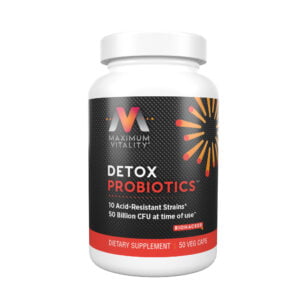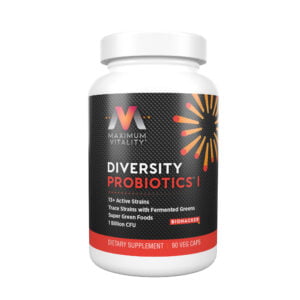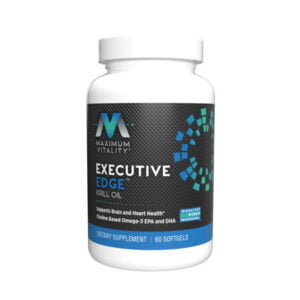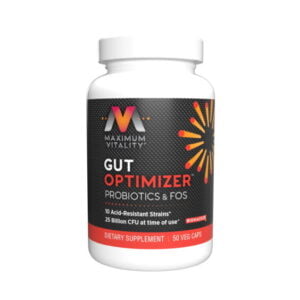What kind of a body can you build on a weak foundation? I suppose it is a body that is not balanced and subject to health issues.
What kind of a body can you build on a strong foundation? Likely the one you want! A body which is healthy, strong, resilient, and with energy reserves to push through a crunch. A mind where you can focus clearly, think fast, and have a great memory. Heart and muscles that will perform as you desire. A core that is strong enough to keep you from hurting yourself when exercising or sitting for many hours.
Whether it is conquering the board room, winning the game, performance in court, closing the sale, navigating raising a family, or achieving any of your other desires, solid foundational health keeps your body running smoothly all day and night. You have energy reserves that kick in to keep you a step ahead with the best possible performance.
Eat Healthy, Exercise, Live Clean
Eating healthy is actually very controversial these days. There are issues of variety, source of your food, nutritional values of various foods, contaminants in the food supply, the value and problems of genetically engineered food, and what makes a balanced diet for each individual and their circumstances.
What does the USDA food pyramid and food plate tell me?
The USDA food pyramid was developed by a committee with input from physicians, health experts, politicians, food growers and manufacturers. The largest food group recommended (40%), is processed food consisting of bread, cereal, pasta and rice. For me, that decreases the credibility of their recommendation, whether presented as a pyramid or in the new food plate format which promotes processed whole grains.
Is there a concern with the worldwide food supply?
During the last 100 years, our food supply has changed radically from fresh food shipped from regional farms and ranches to small local grocery stores to a vast array of commercially processed food shipped throughout the world. To feed a burgeoning population with ever greater efficiencies to bring costs down, the nutritional value of foods has decreased. Commercial farming methods tend to replenish soils only with nutrients that make food grow faster, bigger, sweeter, and have a longer storage, shipping, and shelf life.
These methods include the use of pesticides, insecticides, herbicides, fungicides, antibiotics, chemical fertilizers, and the use of commercial farm excrement from animals that are fed from a commercial food supply.
What does organic buy me?
The biggest backlash is to the use of chemicals such as pesticides, insecticides, herbicides, fungicides and antibiotics in the food supply. It is the organic movement, which is a huge step toward cleaner foods that do not introduce all these contaminants into your body. However, organic does not ensure that your foods are nutrient-rich, only that they have minimal contaminants.
How big do you think the organic farms are that provide organic foods to Costco, Whole Foods, and chain grocery stores? Have you ever wondered where the farms came from? It’s not likely that forests were clear cut to create these new farms. It’s more likely that older farms were kept fallow or stopped using pesticides, insecticides, herbicides and fungicides for the years necessary to obtain organic certification. But that suggests that the new organic certified soil is still nutrient deficient, having been commercially farmed for years before the farm became organic.
What are processed foods that you don’t think about?
Pasteurization demonstrated huge benefits in controlling bacteria in foods, especially milk products. However, it does have a downside. The pasteurization process kills all bacteria – both good and bad. Yogurt isn’t yogurt without bacteria. So, some milk products, such as yogurt, are fortified with a few strains of beneficial bacteria. It is often one inexpensive strain that is added, along with sugars, making yogurts one of the most common processed foods that you don’t think of as processed food. I once heard a very famous doctor say that he liked a certain brand of yogurt because he knew the exact probiotic strain in the yogurt. So, it met his pharmaceutical indoctrination of as close to synthetic as possible to control for side effects. For further discussion on “pharmaceutical grade” see FAQ.
What’s the value of variety in your diet?
Eating a wide variety of foods will help ensure that you receive the micronutrients, vitamins, minerals, probiotics, and cofactors that your body needs to operate at its best. Foods called superfoods are nutrient-dense foods. Even with superfoods, you still need variety in your diet. But many people tend to eat the same foods regularly. It’s easier, it’s familiar, it’s more convenient, it’s less time-consuming.
There are some nutrients that are only generously available in infrequently eaten foods such as exotic nuts, farm fresh seasonal fruits and vegetables, seafood, fermented foods, and organ meats.
Scientific Evidence
Professor Emeritus Bruce Ames has spent the last twenty years of his 70-year career studying nutrition. I am proud to call him a friend. He has spoken for us at medical conferences. His Triage Theory of Aging describes how the body utilizes nutrients in times of scarcity. That scarcity is generally from a diet that does not have enough variety.
As the theory name suggests, he has written and proven that the body allocates limited nutrients to foundational health functions in the body that are needed for immediate maintenance of life – such as the beating of the heart, function of the lungs, brain, and most other organs. Where there is a scarcity, functions such as healthy RNA and DNA replication and energy production suffer. So, the impact of a micronutrient deficiency does not present to your doctor immediately, but it will show its head years later as diseases of aging, such as heart disease and cancer. As people with modest or sporadic deficiencies show no symptoms of overt disease, there has been little incentive to do the very long-term research to demonstrate long-term effects of these nutrient deficiencies.
His research team at Children’s Hospital Oakland Research Institute (CHORI) has demonstrated the results of triage theory with studies on vitamins A, B6, B1, C, D, E (especially gamma-E, K, folate) and others.
Essential minerals for foundational health include calcium, chloride, chromium, cobalt, copper, iodide, iron, magnesium, manganese, molybdenum, phosphorus, selenium, sodium and zinc. Other essential nutrients include choline, histidine, isoleucine, leucine, lysine, methionine, omega-3 and omega-6 fatty acids, and more. His subsequent work identified micronutrients that he named longevity nutrients. He identifies these nutrients as critical for healthy aging. They include plant antioxidant carotenoids lutein, zeaxanthin, lycopene, alpha and beta carotene, the marine carotenoid astaxanthin, the bacterial metabolites and pyrroloquinoline quinone (PQQ). In our discussions, he has mentioned other likely longevity nutrients such as resveratrol for DNA support, Coenzyme Q10 for mitochondrial support, choline, ALC, and vitamin E tocotrienols for neuroprotective properties, N-Acetyl Cysteine for glutathione support and gene expression, green tea, ginkgo, and turmeric for immune and liver support, as well as bilberry, ginkgo, and mixed tocopherols for vascular support.
How Foundational Health Supplements Boost Your Health
To be your best, optimal health is a must, and to achieve this you may need additional nutrients to fill the inevitable micronutrient gaps in your diet. Supplements designed to provide foundational health feature important nutrients that the body doesn’t always get through diet alone. View a comparison of multivitamins recommended by medical practitioners to see the vast differences in multivitamins.
In addition to a good diet, foundational health supplements are the building blocks of success in everything that we do. The benefits of taking these convenient supplements include:
Increased energy levels
Healthy vitamin, mineral, and other micronutrient levels
Better sleep patterns
A more robust immune system
Feelings of well-being
An investment in long-term good health
By investing the few minutes it takes to choose the right foundational health supplements, you will be gifting your body good health that will pave the way for big achievements and optimal performance.





